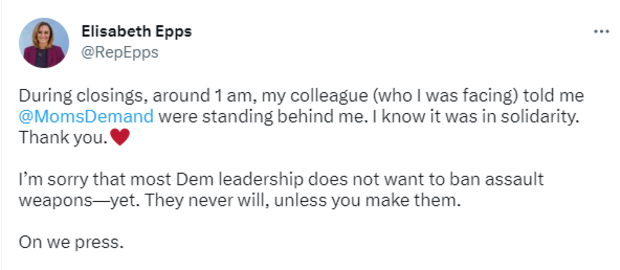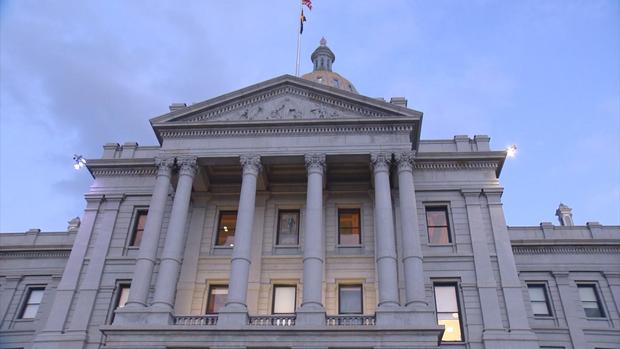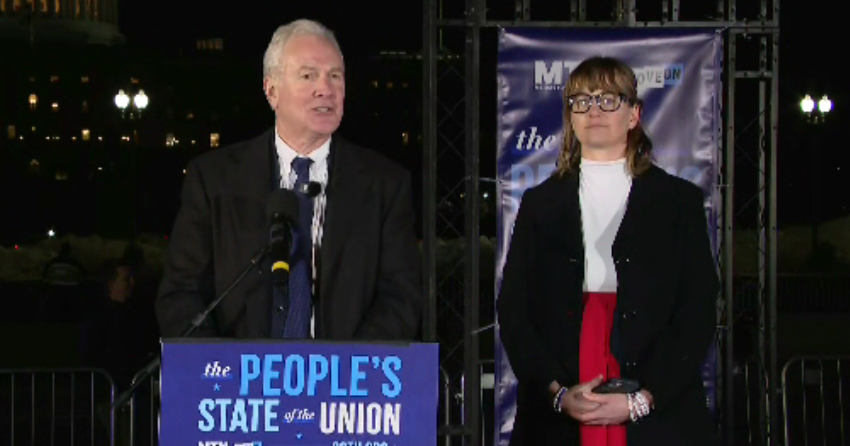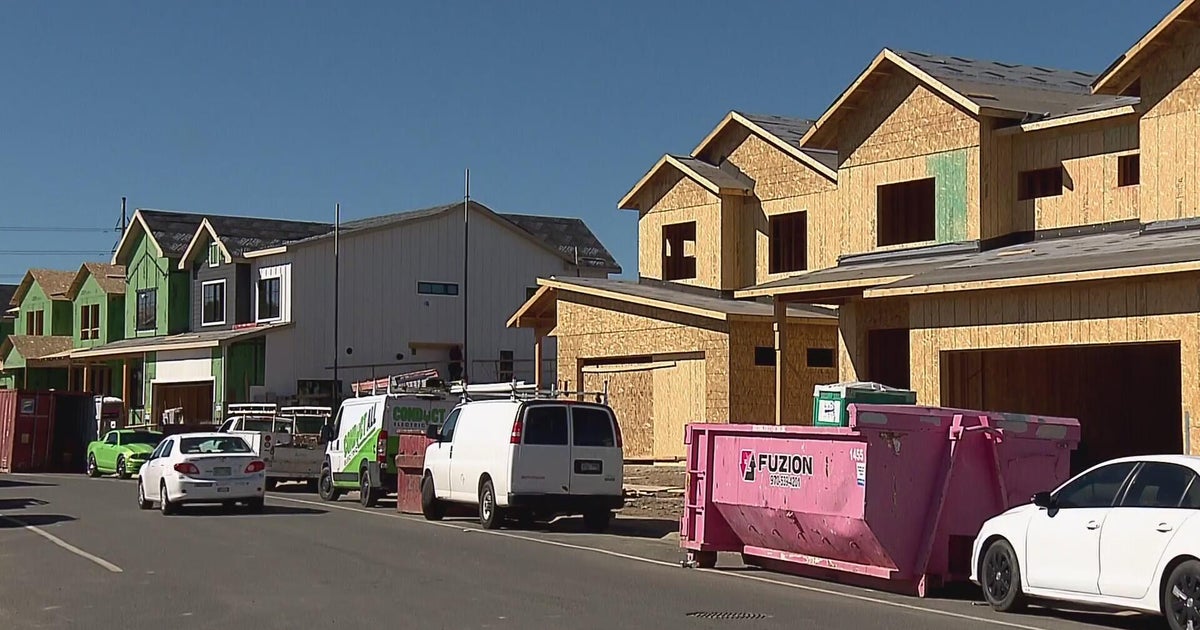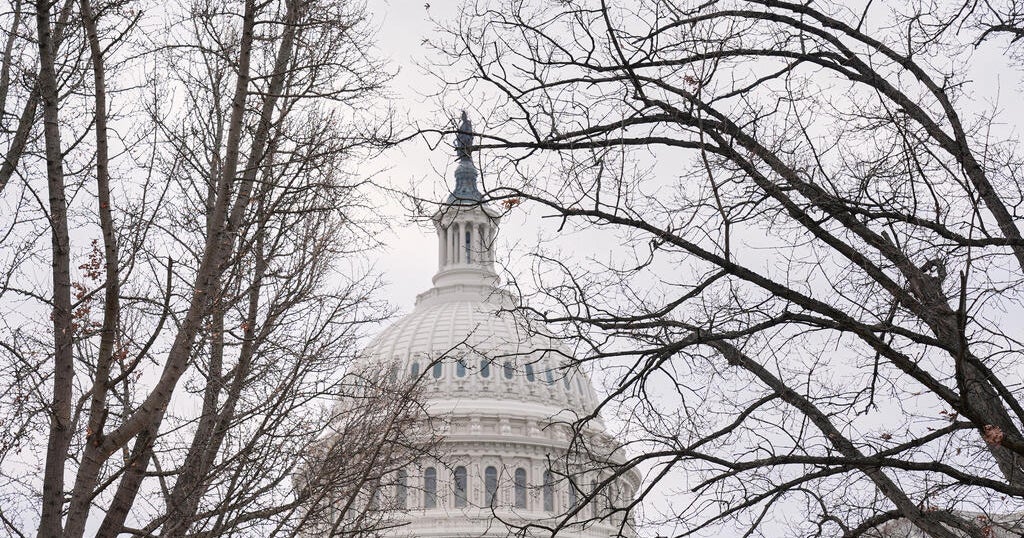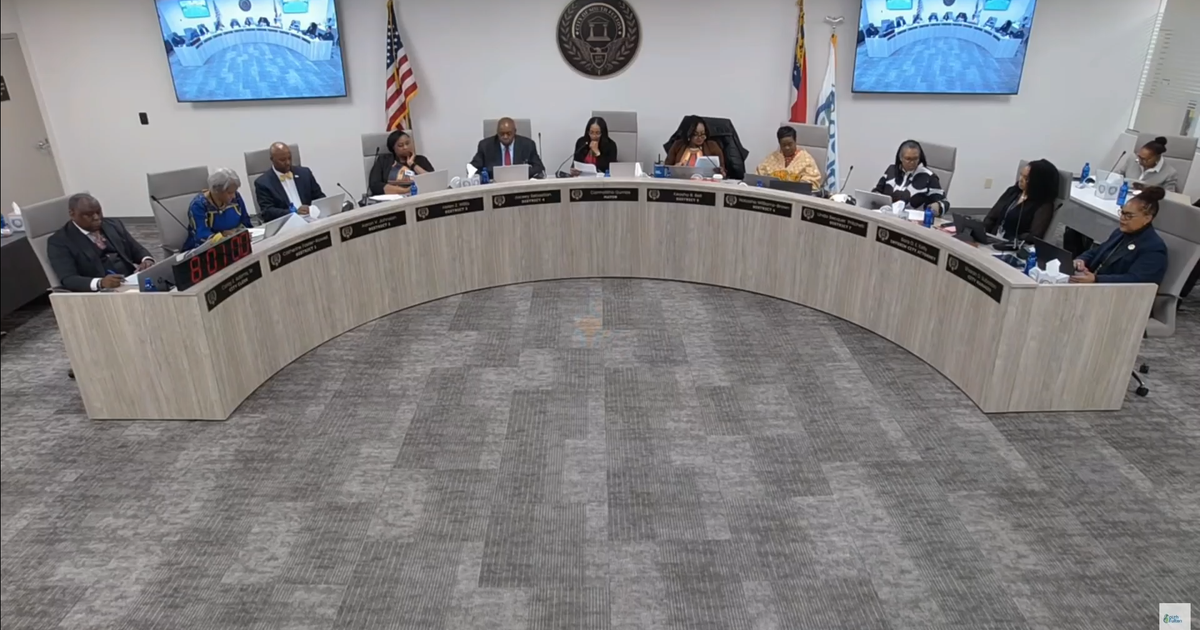Colorado lawmakers fail to pass ban of assault weapons
After 15 hours of debate, a measure to ban on assault style weapons failed just before 1 a.m. The bill rejected is House Bill 1230. State Rep. Elisabeth Epps proposed two late amendments which would have all but stripped the bill. They would have banned devices that would increased the fire rate of semi-automatic weapons also known as bump stocks. The Judiciary Committee failed to move the bill forward in a vote of 8 to 5.
In a vast hall of Colorado's Capitol, hundreds sat between columns for a hearing Wednesday night on a sweeping bill to ban semi-automatic firearms months after a mass shooting at an LGBTQ nightclub in Colorado Springs — the latest in the state's long history of massacres.
Rep. Elisabeth Epps, the bill's sponsor, wiped tears from her eyes during her opening remarks as she appealed to her fellow Democrats — who control the state's legislature and are the bill's only hurdle — to pass the ban.
Originally the bill, "defines the term "assault weapon" and prohibits a person from manufacturing, importing, purchasing, selling, offering to sell, or transferring ownership of an assault weapon. The bill further prohibits a person from possessing a rapid-fire trigger activator. A violation is a class 2 misdemeanor."
"Which school was it when you realized, 'Babies? We aren't going to ban them now?'" said Epps. "I'm scared of what it says about us, if when there are 69 members of my party in the body, we don't run this bill."
The Legislature has passed a package of narrower gun control measures that is expected to be signed by the state's governor — more closely aligning Colorado with the liberal strongholds of California and New York. But the sweeping ban on semi-automatic firearms faces much stiffer odds and illustrates that even Democratic-controlled statehouses don't have free rein on overhauling laws rooted deep in American culture.
More than 500 people have signed up to testify at the proposal's first hearing — the vast majority in opposition to the ban — and tensions rose as the hearing got underway, with audience applause being swiftly silenced by committee members.
The other gun-control proposals that have found broad Democratic support include strengthening red-flag laws, raising the firearm purchasing age to 21, opening the gun industry up to legal liability and installing a three-day waiting period after buying a gun.
In one of the first testimonies of the hearing, Austin Hein of the National Association for Gun Rights said that none of the bills will do "anything to address the root cause of the mental health, overly medicated children in fatherless homes and gun-free zones that are plaguing our state."
Hein added that, particularly the semi-automatic ban, which includes a number of pistols and shotguns, "will leave law-abiding citizens defenseless to the alarming rise of violent crime caused by the progressive criminal justice reform."
Hein vowed to lodge a lawsuit before the ink dries on any such bill that is passed.
Colorado has suffered some of the nation's most notorious massacres, including 13 killed in 1999 at Columbine High School, 12 killed in 2012 at an Aurora movie theater, 10 killed in 2021 at a Boulder supermarket and five killed last November at a Colorado Springs gay nightclub.
Just last month, after a student shot two administrators in a Denver high school, waves of chanting students and teachers filled Colorado's Capitol demanding that gun-control laws be passed.
The Capitol's halls were filled with high schoolers locked in debate with lawmakers. Others lay on the marble floors in front of Gov. Jared Polis' office until he appeared to hear their grievances. One student who disrupted proceedings in the House was carried out by law enforcement.
While deeply Democratic states such as California, New York and Massachusetts have restricted semi-automatic rifles, the proposal in Colorado has revealed divides even among Democrats and incited ongoing contention between the urban and rural parts of the state.
Democrats have collectively forced the other gun control measures through the House, Senate and toward the governor's desk, but the semi-automatic firearm ban has not received the same urgency. Polis, a Democrat, has demurred when asked questions about the ban. It is a state where Democrats know well that going too far on gun laws can put them in political peril.
A decade ago, Colorado voters ousted two state lawmakers in first-ever recall elections that came in reaction to the Democrats' support for tougher gun laws in the aftermath of the Aurora theater shooting.
The measures are being considered as Colorado, along with a number of cities including Boulder, are being sued by groups including the Rocky Mountain Gun Owners over a statewide 15-round magazine capacity limit and a semi-automatic rifle ban. The gun rights groups were encouraged by a recent Supreme Court decision that set new standards for courts evaluating gun laws.
